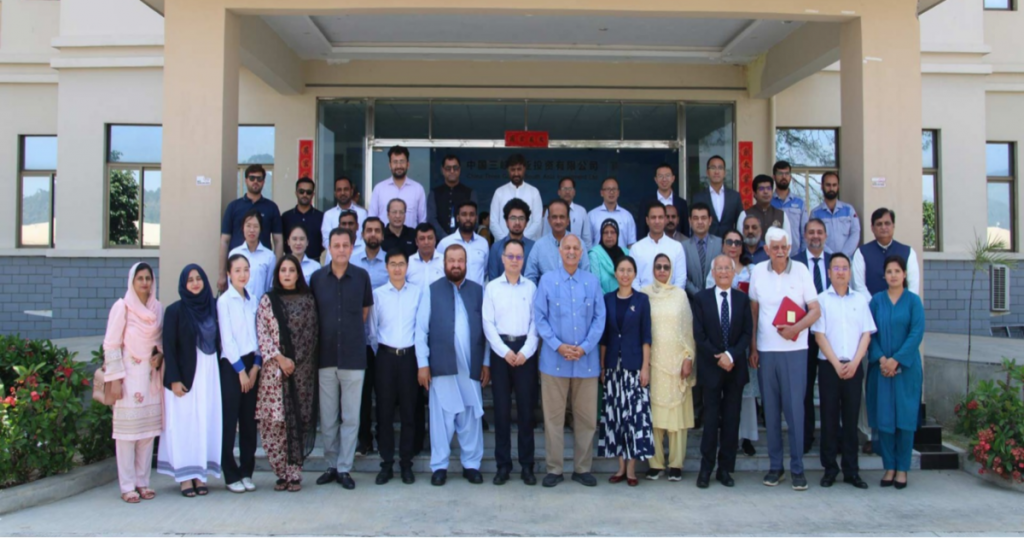A Parliamentary Delegation visited the Karot Hydropower Project KHPP) on June 17th to commemorate its 1st Anniversary and celebrate the 10 years of the China-Pakistan Economic Corridor (CPEC) and Belt and Road Initiative.
Senator Mushahid Hussain Syed led the delegation which was the first cross-party parliamentary delegation to visit the KHPP. Senator Waleed Iqbal, Senator Taj Haider, Senator Sadia Abbasi, Senator Palwasha Mohammad Zia Khan, and Senator Muhammad Asad Ali Khan Junejo were also part of the delegation besides some journalists, bloggers, and students.
While welcoming the delegation, Wang Minsheng, CEO of KHPP sponsor China Three Gorges South Asian Investment Limited (CSAIL) emphasized the significance of the project and the operations underway to boost Pakistan’s energy sector.
“With an annual generating capacity of about 3.2 billion kWh, the project is expected to save about 1.4 million tons of standard coal and reduce carbon dioxide emissions by 3.5 million tons each year, meeting the electricity needs of 5 million people in Pakistan,” he said.
Senator Mushahid Hussain Syed appreciated the project team on the effective operation and maintenance of the KHPP. Mr. Sayed also appreciated the team’s efforts in improving the local community, including the construction of the care unit of THQ Hospital Kahuta.
Senator Waleed Iqbal said that 720 MW KHPP is the first large-scale hydropower project under CPEC, emphasizing that its significance is not only for Pakistan but also for the regional development of Green Energy.
Counsellor Bao Zhong from the Chinese embassy stated that with the joint efforts of people from all walks of life in the two countries, KHPP strongly resonates with the BRI spirit of extensive consultation, joint construction and shared benefits.
The delegation visited key project components such as the spillway, dam structure, and power house during their visit. They were presented technical briefings on project elements and environmental protection measures implemented in the project region.





